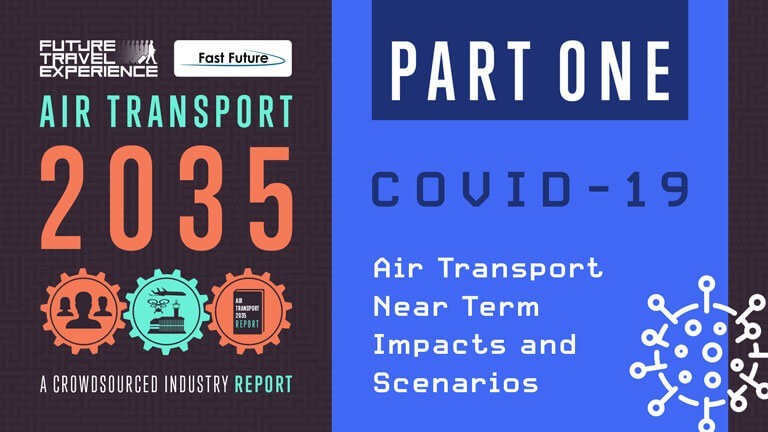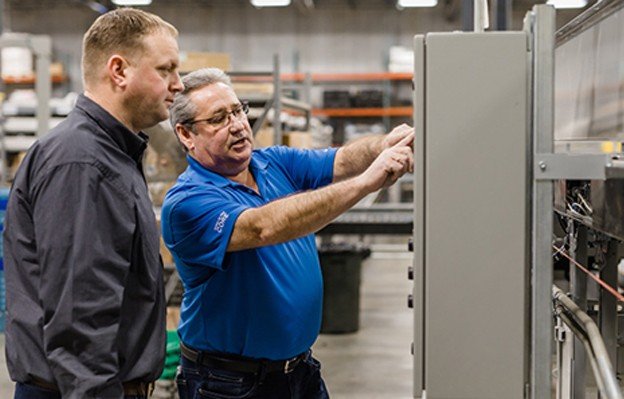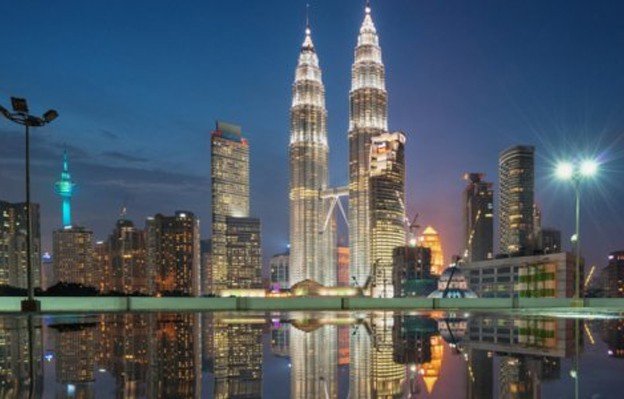Pandemic has changed the world, and the travel and airport industry has been affected the most. The airports have been focusing on the digital transformation for airlines and airports. The journey of getting out of the COVID-19 pandemic has started, and the authorities are adopting digital technologies to improve the facilities at the airport and make the travel safer during and after the epidemic. The airlines and the airports, and all the other air transport industry stakeholders prioritize making their investment in the digital transformation and the automation.
This will help in the sustainability and innovation of airports and airlines. The customer experience will be enhanced and improved, and the passengers will have safer travel after the pandemic. A new report has been released by the Fast Future and the Future Travel Experience (FTE) jointly. It has revealed that the Airline Passenger Experience Association (APEX) will be providing more Safety and security to the passengers. The safety and trust-building procedure will also be highlighted, and the stakeholders of the airlines and airports will be focusing on the industry’s recovery using the digital transformation and automation.
The COVID-19 has affected the airport and airline industry, and both the enterprises are striving hard to get back on their toes. The Air Transport Term Impacts and the Scenarios report has been released recently, and it has thrown light on what changes will occur in the year 2021 after the pandemic starts to go away. The first installment of the report has been resealed, and the four-part Air Transport will be releasing guidelines till the 2035 series. The report explores how stakeholders expect to resolve the COVID-19 crisis and how much impact COVID-1 will have on the passengers.
The investment strategies are being made, and automation and digital transformation will be the main focus. The report has also highlighted the four possible scenarios that will help the travel and airport industry emerge back from the pandemic. A global survey has been conducted, and the report has found that in the past two years, 68.4% of the airport and airline industry are interested in investing in digital transformation. There are chances of it increasing by up to 60.3% after the pandemic.
The expected investment in automation and digital transformation will increase significantly after the epidemic. The industries are also looking forward to investing in artificial intelligence, and the use of (AI) technology will again rise. 54.2% of the stakeholders are planning to increase their investment and improve the airline and airport industry’s sustainability. Many new environmental initiatives are also going to be taken by the industries. More than half (53.5%) of the industry expects to invest in the innovation that is likely to increase after the pandemic period. We will see an upturn in customer experience after the incorporation of CX and automation.
AI/AUTOMATION and CX
Travel Industry – The Journey to the Next Phase of Digital
The travel industry is already using many modern technologies, and the passengers are using websites as marketing channels to make online reservations. The travel industry and the airline industry have been an early adopter and have been using digital technologies for a long time. The business environment has become so much more competitive, and customer expectations have also increased significantly. Horizon two and Horizon three technologies have launched and have been maturing. The time calls to implement new and novel strategies to provide customers with seamless and safe travel experiences.
The travel industry isn’t working alone, and several providers help enhance the travel experience. The travel industry includes airlines, hotels, and also rental car services. The airports are also a significant part of the travel industry as people travel using the airports. The customers are now expecting to get a seamless experience and are looking forward to hyper-personal adventures. The explosion of mobile devices and new and innovative technologies has helped the travel industry explore new horizons. The travel industry is looking forward to improving the customer experience using digital experience.
The travel industry has been using new technologies, and technologies have evolved rapidly in the last few years. The organizations related to the travel industry now have access to real-time data that come from multiple sources. This has helped the travel industry to improve demand forecasting. The guest profiling has also enhanced, and resource planning will also get better due to technology use. Artificial Intelligence (AI) and Machine Learning (ML) have become more prominent.
The Augmented Reality (AR) has also been in use at airports and airlines. The Virtual Reality (VR) and Data Analytics will now be using more efficiently post the pandemic. Advanced and digital technology has also reached an advanced level and has made the system more sophisticated. These technologies come with much potential and might disrupt the traditional approaches that can help market the travel industry. The customer insights and the engagement of the customers are also enhanced and improved. This has also helped to increase the profitability of the travel industry. The airlines and airport industry will be investing in the automation and digital transformation. After the COVID-19 disruption the travel industry will be focusing on the digital technologies to get back to the normal state and provide the passengers with a better experience.
Advanced-Data Analytics and CX Big Data
The digital age will be evolving in 2021, and many customers are bound to leave big data when they begin their travel journey. Their planning and the research, reservation is also in the records. The places they will stay at, and what is their post-travel review is also shared on various sites on the internet. This data is a blend of the structured and some unstructured data gathered from multiple connecting sources. The sources include the front desks and the contact centers. Most of the information is also collected from mobile apps and social media used by passengers. The guest service channels also provide a lot of information about the travel plans of the customers. The travel industry uses insights gathered from the data, and the advanced analytics process also allows the service providers to bring personalization and improvement in the travel experience. The travel industry also offers customized offerings, and this also gives the industry to improve customer loyalty.
Infosys is the Customer genome solution, and the process uses the information that can help build the digital profile of the passengers that will be traveling. This also allows the Airline Passenger Service Systems (PSS) and also improves the Customer Relationship Management (CRM) Systems to gather more data. The Hotel Property Management Systems (PMS) can guide the passengers and the providers to provide a rich customer experience during their travel. The senior citizen and the hotel guests’ needs and requirements offer them the floor rooms to not have to walk a lot. This has also helped to shorten their wait times and their check-in time. Other millennial travelers might be comfortable in using the mobile key of the activated elevators. The genome solution has also helped to generate the profiles and also send the recommendations to the staff.
Dynamic pricing has also helped to review revenue management strategies. The strategies are based on the real-time data that comes directly from the competitor rates. The local events and seasonal patterns are also discovered due to the use of digital transformation. The revenue managers also provide the management with unprecedented insights that involve the pricing for the airlines. Many commercial products can help you to get the point solutions on the airports. The overarching mechanism and modern technologies have enabled the management teams to provide more insights into customer behavior. The revenue management tools will help you to build predictive models. The customized campaigns also help to analyze the big frontier. The Analytics workbench also helps the clients get an end-to-end solution that helps to provide the data scientists the valid information they need to improve customer satisfaction.
Artificial Intelligence and Machine Learning
AI can provide the travel industry to transform every aspect of travel significantly. The AI/ML hinges have also helped to improve the quality of the data that is available. The travel industry, however, has always been good at collecting data of the passengers. AI offerings allow the industry to use rich data, and they are accessible. Digital technology has also improved its bundled and has enhanced each segment of the clientele that is targeted. Machine Learning has given rise to the Natural Language Processing (NLP) and has helped build useful chatbots. The bots can help to mimic human behavior, and they can make interactions with the customers. The travel industry has evolved, and the passengers get the best travel experience. The Cognitive chatbots can help travelers and have helped the passengers at every travel stage. The digital transformation has also helped to provide the best advice to pick the best destination.
Modern technologies also offer travelers the best suggestions to help them eat and visit the best restaurants that suit their tastes. They also suggest the spa offerings that will be based on personal preferences. The Hotel operators will again be using the AI to help improve operational efficiency. The travel industry has obliged to monitor the IoT based sensors on the hotel premises. This allows them to detect faults and anomalies. The hotel authorities can help to fix the issues before causing any disturbance to the hotel guests. This can also help to prevent the calls made on the service desk. The negative reviews about the hotels on social media allow travelers to make changes.
Travel data can turn out to be dynamic and can allow travelers to know the changing weather and other conditions. It is best to use Machine Learning to optimize operations. The rule-based probabilistic have generated new models to shape up a better travel experience for the customers. ML has also helped to decide the allocation of rooms according to the needs of the hotel guests. This can help the hotel owners to derive the maximum profitability.
AI and cognitive capabilities can allow the travel industry to meet and exceed customer expectations when air travel. The AI and data science of the airlines allow predicting and reducing the entire baggage. This can also help to change the supply chain and can help to provide the modeling optimized routes.
The airlines and airports are investing in the automation and CX area of and the airport operators will now be using the location-based sensor (LBS) networks. The investment is also being made in the beacons. The geo location services also help improve the security and efficiency of the movable assets provided in the airside services. The automation has also helped route monitoring and can also handle the wheelchair demand tracks offered at the airport gates. The large airline carriers are now offering more Personalized Offers Solution to automate the wheelchair assistance services. CX and new technologies have made it easy to eliminate the waiting time for older passengers. The automation has helped to develop the best solution for the POS payments. They can be done using voice and sound technology. The airport concessionaires have also provided innovative and frictionless experiences when it comes to the payment channel.
Augmented Reality/ Virtual Reality
The travel is about an enjoyable experience, and also provides tremendous scope for the AR/VR technologies to improve the customer experience. This has also provided many immersive experiences and has given rise to better potential travelers. Digital technologies have also helped the passengers to make the right travel decisions.
There is a significant impact of the technology on the travel industry, and the industries are investing in automation and CX. This has enhanced the leverage and exciting advances to make the organizations more effective. The travel industry is investing in new technologies like Blockchain, AR/VR, IoT, API, and microservices. These technologies stitched together have allowed bringing compelling solutions to the customers. The digital transformation has helped enhance the customer experience, and have gained many digital benefits by increasing their revenue.









